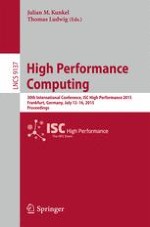2015 | OriginalPaper | Buchkapitel
Energy-Efficient Data Processing Through Data Sparsing with Artifacts
verfasst von : Pablo Graubner, Patrick Heckmann, Bernd Freisleben
Erschienen in: High Performance Computing
Aktivieren Sie unsere intelligente Suche, um passende Fachinhalte oder Patente zu finden.
Wählen Sie Textabschnitte aus um mit Künstlicher Intelligenz passenden Patente zu finden. powered by
Markieren Sie Textabschnitte, um KI-gestützt weitere passende Inhalte zu finden. powered by
